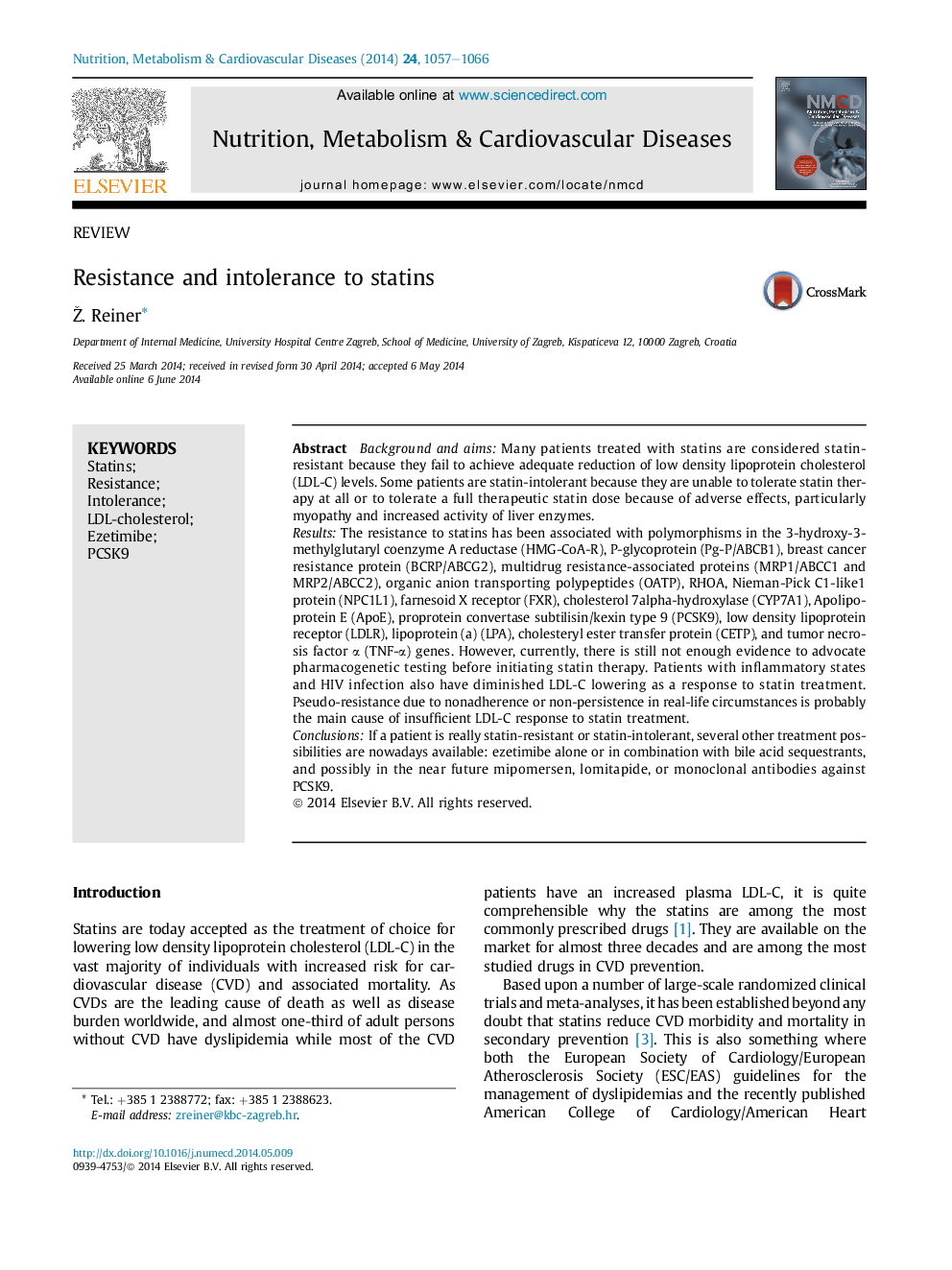| کد مقاله | کد نشریه | سال انتشار | مقاله انگلیسی | نسخه تمام متن |
|---|---|---|---|---|
| 3001937 | 1180687 | 2014 | 10 صفحه PDF | دانلود رایگان |
• Statin resistance is a term used to describe the failure to reach LDL-cholesterol target values despite statin therapy.
• Statin intolerance is the inability to tolerate statin at all or to tolerate a full dose having adverse effects, mostly myopathy.
• The resistance to statins has been associated, among others, with polymorphisms in a number of genes.
• Pseudo-resistance due to nonadherence in real life is probably the main cause of insufficient LDL-cholesterol response to statins.
• If a patient is statin-resistant or statin-intolerant, several other treatment possibilities are nowadays available.
Background and aimsMany patients treated with statins are considered statin-resistant because they fail to achieve adequate reduction of low density lipoprotein cholesterol (LDL-C) levels. Some patients are statin-intolerant because they are unable to tolerate statin therapy at all or to tolerate a full therapeutic statin dose because of adverse effects, particularly myopathy and increased activity of liver enzymes.ResultsThe resistance to statins has been associated with polymorphisms in the 3-hydroxy-3-methylglutaryl coenzyme A reductase (HMG-CoA-R), P-glycoprotein (Pg-P/ABCB1), breast cancer resistance protein (BCRP/ABCG2), multidrug resistance-associated proteins (MRP1/ABCC1 and MRP2/ABCC2), organic anion transporting polypeptides (OATP), RHOA, Nieman-Pick C1-like1 protein (NPC1L1), farnesoid X receptor (FXR), cholesterol 7alpha-hydroxylase (CYP7A1), Apolipoprotein E (ApoE), proprotein convertase subtilisin/kexin type 9 (PCSK9), low density lipoprotein receptor (LDLR), lipoprotein (a) (LPA), cholesteryl ester transfer protein (CETP), and tumor necrosis factor α (TNF-α) genes. However, currently, there is still not enough evidence to advocate pharmacogenetic testing before initiating statin therapy. Patients with inflammatory states and HIV infection also have diminished LDL-C lowering as a response to statin treatment. Pseudo-resistance due to nonadherence or non-persistence in real-life circumstances is probably the main cause of insufficient LDL-C response to statin treatment.ConclusionsIf a patient is really statin-resistant or statin-intolerant, several other treatment possibilities are nowadays available: ezetimibe alone or in combination with bile acid sequestrants, and possibly in the near future mipomersen, lomitapide, or monoclonal antibodies against PCSK9.
Journal: Nutrition, Metabolism and Cardiovascular Diseases - Volume 24, Issue 10, October 2014, Pages 1057–1066
